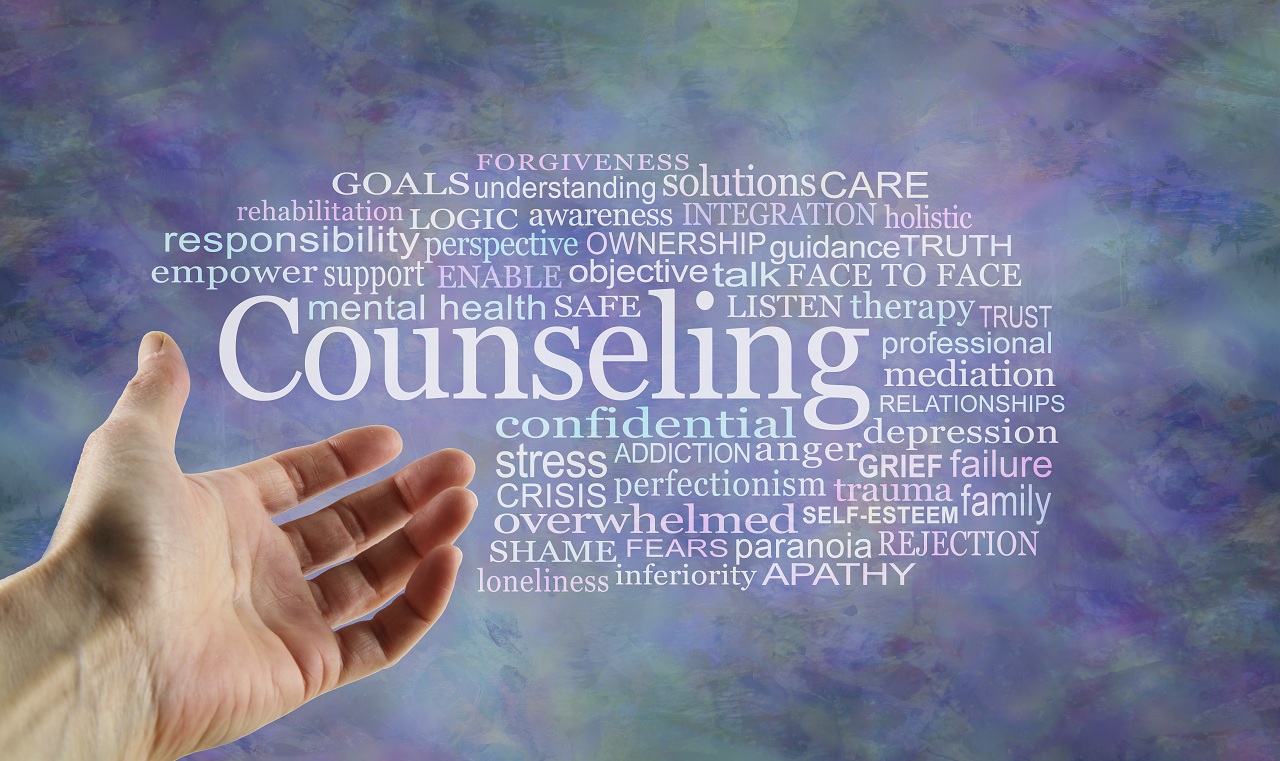13 Tell-Tale Signs You Might Need Counseling

Everybody has rough times. Financial problems, family issues, work problems, and personal conflicts are often the causes why a person becomes stressed and burned out. While people constantly face minor and major life problems, there are those who need professional help because they feel less tolerant and fragile than others.
Seeking professional help isn’t just for the mentally disturbed individuals. Even people with healthy mental disposition seek psychiatric advice and undergo mental health assessment as part of their annual check-up or health regimen.
But when can you say that you might need counseling as soon as possible? Read below to find out the answer to this common mental health question to help you make up your mind and realize that it’s a worthy decision.
1. Maladaptive Behavior

If your behavior suddenly changed, this is a tell-tale sign you might need counseling. Maladaptive behavior means ‘ill’ or ‘negative’ behavior, far different from what people usually know about you. It may include doing actions that aren’t logical or unusual.
It’s crucial to identify these maladaptive behaviors so you can replace them with more productive ones. If you exhibit maladaptive behaviors, it’s important to undergo behavioral health counseling. Learn more about behavioral health counseling at https://www.hcbh.org/.
Here are the things you need to know about maladaptive behavior:
- Can Start At An Early Age: Maladaptive behaviors could be a habit picked up in childhood years.
- Limits Coping Skills: Maladaptive behavior can stop a person from adapting to difficult circumstances or new life events.
- Common Causes: Most often than not, maladaptive behaviors begin when a person experiences a major life change such as a sudden death in the family, terminal illness, or traumatic event like a car accident.
- Manifestations: You might not notice your behavioral changes until someone tells you about it. Your parents, spouse, or children might tell you that you have a different behavior. They may describe you as ‘not yourself.’ Some examples of maladaptive behaviors include withdrawal, avoidance, self-isolation, and passive aggression. The signs and symptoms may include insomnia, extremely vivid daydreaming, and difficulty completing everyday tasks.
2. You Feel Hopeless
Feelings of hopelessness can be a sign of depression. It’s absolutely one of the tell-tale signs you need counseling. Hopelessness can drag a person to commit suicide or harm other people.
Counseling can help hopeless people find light on their current situation through different therapies (this will be discussed further below). A psychologist or psychiatrist can help a hopeless person find a sense of self-worth and life direction.
A hopeless person feels worthless, numb, humiliated, and lonely. Also, feelings of hopelessness can result in the following:
- Neglecting to groom
- Forgetting medical appointments
- Neglecting children
- Oversleeping or insomnia
- Not completing everyday tasks
3. You Feel Depressed

Never underestimate the feeling of sadness or depression. Early treatment is crucial to avoid it from getting worse. If you admittedly feel depressed, then you definitely need professional counseling.
A counselor can initiate psychotherapy to help you get over the depressive state, such as the following:
- Interpersonal Therapy: This psychotherapy is recommended for the treatment of depression and other mental health conditions. It focuses on improving an individual’s relationship skills. The way you treat your spouse, children, parents, colleagues, and other people around you make up your interpersonal relationships. A counselor can help you understand and interact positively with others.
- Cognitive Behavioral Therapy (CBT): This type of talk or psychotherapy can help a depressed person manage problems by changing negative thinking and behavior. CBT is most commonly used to treat anxiety, depression, and other health problems.
- Psychodynamic Psychotherapy: This psychotherapy aims to recognize a person’s negative behavior patterns that stem from past experiences. Unresolved feelings from past experiences are believed to affect the current behavior of a person. Therapists use free association and ask open-ended questions for patients to freely express themselves and discuss anything they’re thinking and keeping by themselves.
- Therapy Pets: Dogs and other animals can be helpful in reducing the stress and anxiety of depressed people. Therapists with training in handling trained therapy pets can provide structured animal-assisted therapy to provide you utmost comfort.
4. You Feel Helpless
Do you think it’s the end of the line? You probably exhausted everything you can do to get over your current situation. Also, you fear your family and friends might get tired of listening to you, so you decide to isolate yourself. You fear being judged or humiliated. This feeling of helplessness is a tell-tale sign you need professional help.
A psychiatrist or psychologist is trained to implement proven techniques to help you strengthen your coping mechanism. You’ll undergo a complete psychological assessment and continuous monitoring to help you find your way to recovery.
Speaking with a professional can be highly beneficial if you feel helpless because you have a neutral person with whom you can share your problems with. You won’t need to feel embarrassed or hesitate because you know that a psychologist deals with similar issues every day. Of course, dealing with a professional can give you assurance of your case’s complete privacy and confidentiality.
5. You’re Less Productive

Another sign that you might need counseling is when you become less or not productive at all, which can be observed by your colleagues and supervisor. You might have fears associated with the current pandemic such as how you can survive the new normal.
A work-from-home setting can be new for you and you worry too much about not keeping up with your other co-workers because you’re less tech-savvy. The uncertainties, restrictions, and the ‘new normal’ might be causing your extreme sadness.
During this pandemic, work is very important, so you need to improve your mental health even when you’re working at home. If you can’t afford to lose your job, seek counseling immediately to avoid compromising your work. A counselor is like a friend, willing to listen to you without judging you, and even offer some concrete solutions to your problems.
6. Difficulty Maintaining Healthy Relationships
How is your relationship with your partner? Have you gone through divorce cases and feel hopeless you’ll ever have a long-term relationship? Difficulty maintaining healthy relationships is a tell-tale sign you need professional help.
A good relationship needs mutual trust, kindness, and faithfulness. However, some people can’t establish a long-term relationship because of behavioral issues. Unhealthy relationships often lead to frequent misunderstandings and even physical violence.
Professional counseling services include marriage or couples counseling, which aims to help people strengthen their marital relationship by understanding their partners better. The different couples therapy techniques include the following:
- Reflective Listening: This type of couples therapy is a beneficial exercise in which the couple takes turns as active listeners to promote healthy communication and resolution skills.
- Emotionally Focused Therapy: This therapy aims to identify maladaptive patterns in a relationship. You’ll learn to establish safe and secure attachments in your relationship.
- Narrative Therapy: It involves describing problems in narrative form or writing one’s life stories. Because writing your own story can have inconsistencies, this therapy can make you realize that no single story can write the entire picture of your experience. Hence, narrative therapy can help couples realize that they shouldn’t blame each other but rather find ways to make their relationship work.
- Solution-focused Therapy: This technique is focused on working toward a specific goal by constructing solutions instead of dwelling on relationship problems.
7. Inability To Feel Pleasure

Did you use to enjoy gardening or playing badminton but not anymore? You likely have anhedonia. Anhedonia is a medical term, which refers to the inability to feel pleasure or enjoy the things you used to do such as your hobbies. You’ve lost interest in things that make you excited or happy. Anhedonia is one of the tell-tale signs of depression and the need for counseling.
A counselor can initiate vocational activities such as art therapy to revert anhedonia. While this may take some time, full compliance with activity schedules, appointments, and medications can help you eventually to help you return to your ‘okay’ self or happy disposition again.
8. You Avoid Social Situations
Do you find yourself avoiding get-togethers, parties, and work events? When stress and anxiety make you socially withdrawn and affect your everyday activities and social interactions. You likely have a social anxiety disorder that requires counseling and treatment.
Social anxiety disorder can be accompanied by the following physical signs and symptoms:
- Sweating
- Trembling
- Blushing
- Fast heartbeat
- Nausea or upset stomach
- Difficulty breathing
- Lightheadedness or dizziness
- Mind blankness
9. You’ve Experienced A Traumatic Event

Did a family member just die? Or did your boss fire you? A major life crisis, a car accident, sexual abuse, violence, military battle, and other traumatic events can affect mental health. Experts highly recommend people who just experienced trauma undergo psychological counseling.
The National Sexual Violence Resource Center (NSVRC) statistical report shows that one in five women and one in 71 men in the United States face sexual assault in their lifetime. Counselors are considered the front lines of sexual violence reports via crisis intervention.
10. Suicidal
Are you thinking of ending your life? Being suicidal is a tell-tale sign you need help. For depressed people who can’t sleep restfully at night, they find suicide as the ultimate solution to their life problems. They know the consequences of this action but are too tired of their current situation.
Depression often results in sleeplessness, overthinking, and self-isolation. While family members sleep tight at night, depressed patients still have active thoughts, seemingly an unending cycle.
Counseling and medications may be the best treatment. Psychotherapy is beneficial for those who experience chronic suicidal thoughts and behavior. Counselors treat the suicidal patient as a unique individual. If the person has a high risk of suicide, the therapist will likely suggest outpatient treatment, in-patient treatment, or short-term hospitalization.
11. Physical Manifestations

Most often than not, headaches and migraines are caused by physical conditions such as hypertension, toothache, flu, or head trauma. However, unexplained chronic headaches or migraines can be a tell-tale sign of a mental health problem such as anxiety disorder. Along with medications, counseling is essential in dealing with anxiety problems. Psychotherapy can help reduce signs and symptoms of anxiety.
The other physical manifestations with underlying mental health problems may include the following:
- Odd cuts and bruises (possibly due to self-harm)
- Severe sweating and trembling (whenever you perceive threat)
- Increased vital signs (high pulse rate, fast breathing, and high temperature)
- Dizziness or fainting (dehydrated or hungry)
- Obesity (weight gain because of depression)
- Weight loss (not eating well)
- Black circles around the eyes (sleeplessness)
12. Hospitalization
Self-neglect can cause malnutrition, infection, and other diseases. Depressed people may not eat and drink, resulting in nutrient deficiency and dehydration. Also, some people tend to overdose on prescription drugs or engage in excessive alcohol drinking or alcoholism. In these situations, the person needs hospitalization to restore fluid and electrolyte balance or nutrition in the body.
However, treatment doesn’t stop with hospitalization. Patients need to also undergo follow-up treatment and psychological counseling. A face-to-face talk is vital to determine the mental health status of the patient.
So, were you just hospitalized because you fainted after not eating and drinking fluids for several days? You likely have a mental health problem. Don’t hesitate to set an appointment with a mental health provider. Your hospital attending physician may refer you to a specialist for a thorough counseling session.
13. Your Instinct Tells You So

Some people have unknown fears. They’re happy one day and then unhappy the next day. Mood swings, extreme worry, and stress can be observed but patients aren’t aware that they’re experiencing them. So, if your instinct tells you that you need help, then you really need one.
Conclusion
The tell-tale signs you might need counseling can manifest both as physical and behavioral signs and symptoms. By being aware of your thoughts, emotions, and behaviors, you’re more prepared to handle them, especially when problems arise.
Is asking professional help a good decision? Absolutely, yes. A counseling session can be highly beneficial in reducing your stress, anxiety, fear, and depression. It helps prevent serious mental conditions that can disrupt a person’s sense of reality, time, and optimum functioning.




